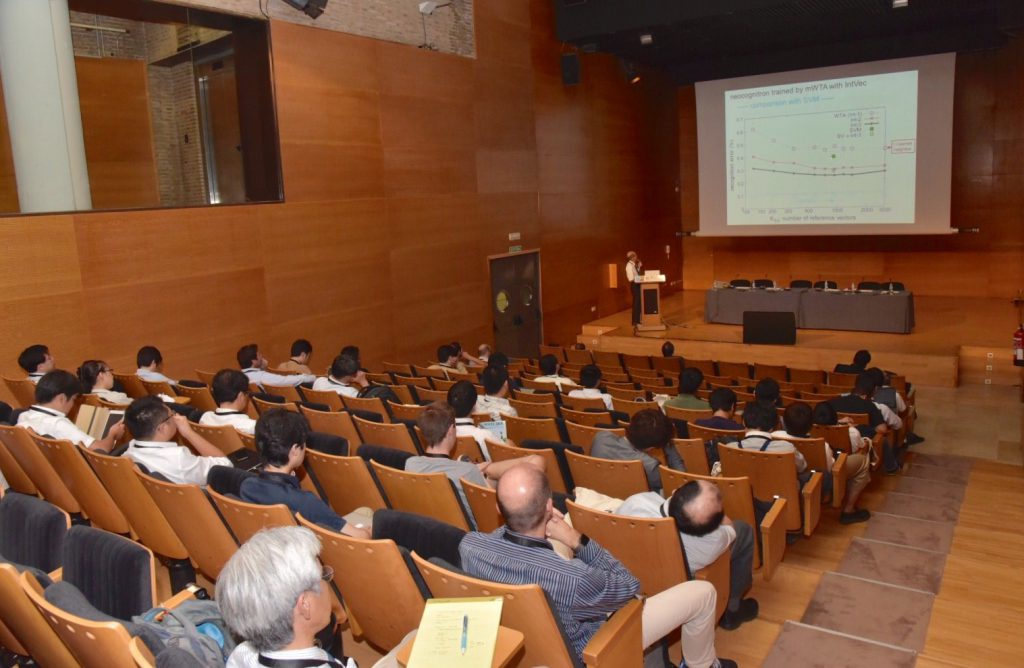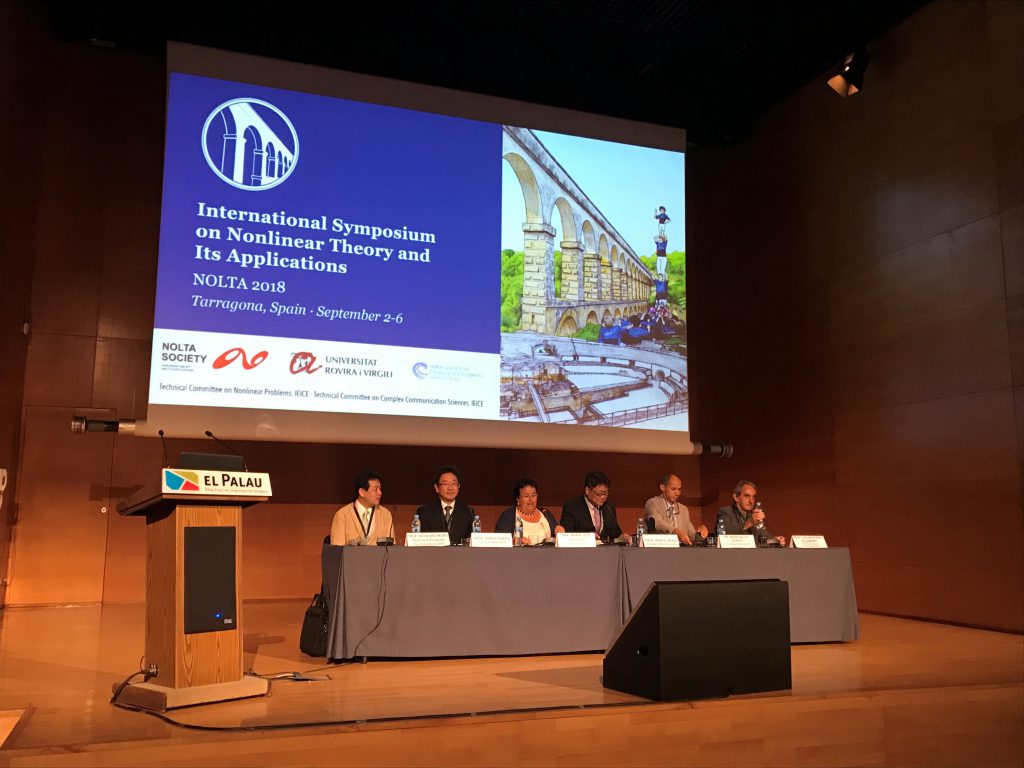03/09/2018
The URV hosts the 28th edition of the international symposium on nonlinear theory and its applications
250 researchers from around the world have gathered at the Palau de Congressos in Tarragona to attend this scientific event

250 researchers from around the world have gathered at the Palau de Congressos in Tarragona to attend this scientific event
The international NOLTA conference (International Symposium on Nonlinear Theory and Its Applications) was hosted this year by the Universitat Rovira i Virgili. URV researcher, Abdelali El Aroudi, jointly presided over proceedings with Professor Hiroo Sekiya from Chiba University (Japan).
The study of nonlinear phenomena forms part of many disciplines in science and engineering, such as mathematics, physics, chemistry, information technology, economics, medicine, biology, psychology, telecommunications, electricity and electronics. This was the 28th edition of the conference, which is organised by the Japanese scientific society NOLTA, the only research community dedicated to promoting nonlinear science and its applications. The event is held in a different location each year and this year it came to Tarragona, where it is being jointly organised by researchers from the URV’s Automation and Industrial Electronics Group (GAEI), including Professor Abdelali El Aroudi.

The main organisers come from Japanese technology institutes and universities such as those in Fukui, Kanagawa, Tokyo, Hosei, Kobe, Gifu, Saitama and Okayama. In addition to the URV, other organisers of the present edition have been the Politecnico di Milano and the University of Newcastle.
The GAEI’s participation in the conference has focused on the use of nonlinear techniques to control electronic power systems, such as battery chargers for electric vehicles or systems for extracting the maximum amount of energy possible from photovoltaic panels and other important sources of renewable energy such as wind turbines.
With a linear system, researchers can make certain suppositions and approximations and conduct more accurate and simple calculations of results. In contrast, nonlinear systems are not equal to the sum of their parts, are usually difficult to model and their behaviour is difficult to predict.
Of the approximately 250 participants that have met in Tarragona, around 180 are Japanese researchers, with the rest coming from other countries around the world.
More news about: congress
